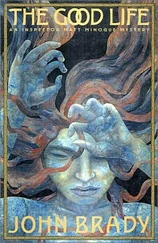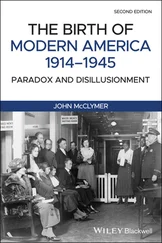*
I said, ‘Why do you believe that you have done something awful, in the past? On what do you base this assertion?’
‘I dream of blood,’ he said. ‘I dream of torrents of blood. A sea of blood. I am swimming in a sea of blood. I am wholly encased in blood. Yet I am not drowning. I can breathe in the blood. Blood is my natural métier, in my dream. I imbibe the blood and am nourished by blood. I am very peaceful and happy. Perhaps I am smiling as I drink down blood. When I wake from these dreams I am sweating and crying. I wake in my cell to the sounds of others screaming and though I try to summon the memory of this blood — to understand its import and also because something deep within me craves it — I cannot.’
‘You say that you are glad of the blood. What do you think this means?’
‘I am not sure.’
‘What other dreams do you have? Are there any others of significance?’
‘There is one, in which I am searching for something in the blood. In this dream I am not in the blood, I am outside it. But I am reaching my hands into it. When I take out my hands they are coated in blood. There is something in the blood that I must find. I feel it is very important that I find this thing quickly. If I do not, I feel something terrible will occur. It is of the utmost importance that I find this thing.’
‘Do you ever find it?’
‘No,’ he said. ‘Sometimes I think I am about to, that soon it will become clear what it is and yet … I cannot see it. It is lost in the blood. I fear I have lost it myself, that I am responsible for the loss of this thing. In my dream I feel a dreadful sense of grief and as if I must die of guilt.’ Then he fell silent. He was still wringing his hands, and with each of these movements his chains rattled. The rattling was persistent and annoying, but I could not ask him to desist. He seemed to find the hand-wringing somehow comforting; certainly I rarely saw him stop it. As I made my notes, I wondered if it was not the case that these dreams of blood suggested a fear of life, of the conditions of living. I was thinking of the classical notion of the contamination of the soul by birth: the suggestion of Origen, for example, that everyone who enters the world is afflicted with a kind of contamination — because they reside in their mother’s womb, and because the source from which they take their body is the father’s seed, and thereby they are contaminated in respect of the father and the mother. I thought perhaps Herr S perceived life as a form of contamination, that this dream represented the striving of his confused soul for something higher than the life around him, and that this striving had severed him from ordinary human congress.
*
I have seen such self-loathing before; indeed such sentiments are often regarded as perfectly necessary and even devout by many of those who follow our major creeds. I have seen these beliefs become rigid in the asylums, drawing many into terrible visions of damnation. It begins with mere conventional piety, and descends into individual mayhem. Thereby believers come to despise the blood which flows through their bodies, and which sustains them. They come to despise it and to hope for a time when it will cease to move in their veins and they will be purged and resur-rected clean. For does it not say in the teachings of Ben Sira, ‘Of the woman came the beginning of sin, and through her we all die’ — through birth we all die into life, torn from the side of our father God? The mother betrays us, drags us away from our spiritual parent, the invisible Father. So millions of humans have been persuaded that the questing soul must deny the mother and the earth; that the divine is not present among us but lies far beyond us. I wondered if Herr S had simply allowed his heart to be commanded by such teachings; and thus he feared this blood he imagined, believed his yearning for it was treacherous and must condemn him.
*
My good Professor Wilson, these are rather vague musings, and I hope you will forgive me. I have often been criticised for the diffusion and inconsequentiality of my thought, and I am quite aware that my opinions are not widely held. And indeed even to those who may agree, such proposals might well seem superfluous to the sad case of Herr S. I am only recording them, indeed, that you may perceive how I have tried to understand him, how many theories I have fashioned. This was how my thoughts ran at this time, and I allowed myself a few moments to note them down.
*
When I lifted my head, and stopped my pen, Herr S had fallen once more into silence. Hoping to rouse him again, I said, ‘Do you have other recurring thoughts?’
‘Oh yes,’ he said. ‘Many thoughts.’
Then he shuddered, horribly, so violently that I thought he must be falling into a fit. He rattled the chains and his whole body convulsed, and he said, ‘Oh I cannot speak about them, they are too … They are …’
‘Can you disclose any of them at all?’
‘There is a name. A name which hammers in my thoughts. It is the name of a woman — I dread to tell it.’
‘If you can, then perhaps we can shed some more light on your condition.’
‘My “condition”? That is a fine word for it!’
‘Why are you afraid of telling me the name of this woman?’
‘She is a woman with bright blue eyes. Flaxen hair, I think. She is very angry with me. I fear I shall anger her further. She is furious and I believe she is tormenting me. I am being punished for the death of this woman.’
‘You know she is dead?’
‘I know it because I killed her.’
‘Why do you believe this to be the case?’
‘She appears to me — she was here just the other day, and she accused me with her eyes. They were piercing my flesh. My body burned when she looked upon me. And there was a pain at my core — here’ — and he pounded on his chest — ‘as her eyes burned into me.’
‘You think you knew this woman?’
‘I did not know her. I met her somewhere, I cannot remember where. I met her and then shortly afterwards — a few days perhaps — she was dead.’
‘Herr S, I would be most interested to know what you call this woman.’
‘I cannot tell you,’ he said. He was shuddering; the man was shaking in the depths of his dread.
*
So I said, ‘Are there any other names you remember?’
arks on them, around the hollows of the eyes and on the gaunt cheeks. They are women’s faces and they are stricken with pain. They appear to me on the wall. I wake and I see them arrayed on the wall before me. Thousands and thousands, perhaps, I am not sure, and I think they are all this woman …’
‘All of them are the same woman?’
‘No they do not look the same. They are not physically the same. But somehow they are all her, I believe them to be her. When these women appear before me they are not like her though they are somehow her but these women have their eyes screwed up in agony and I am fearful, so very fearful, lest they open their eyes. I am writhing in torment, waiting for them to open their eyes and burn me. If they all open their eyes, I am quite sure I must die. So I watch them, and always so far their eyes have been closed. But soon, soon they must open. Then I will burn. Do you understand me?’
‘I am not sure that I do. But I am determined to help you, if I can.’
‘You?’ he said, staring at me suddenly. ‘Why?’
As I began to speak he remembered once more, and said, ‘Yes, yes, of course. It is this cloud. The cloud disperses my recollections. So then I must speak to you alone?’
‘You are under no obligation to talk to me.’
‘You are preparing a document against me?’
‘No, I am not.’
‘My words have always been twisted and used to testify against me. I have a sense that it is very dangerous to speak, to explain, because my words will be misconstrued.’
Читать дальше












